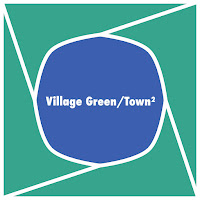It’s a holiday story, a feel-good story, and a reminder. Three-in-one! If you will forgive my saying so, today’s post hits all the right notes. It starts with a story in the Howard County Times.
Mt. Hebron students offer ukulele performance to Alzheimer’s Association for holiday music therapy , Katie V. Jones, Baltimore Sun Media
The article begins:
On a recent December afternoon, five teenage members of Mt. Hebron High School’s ukulele club gathered to rehearse and record holiday songs. The recording wasn’t just for fun. Sanika Devare, 16, has arranged for it to air on social media, with the hope of providing a source of music therapy for dementia patients.
I immediately thought of that episode of Science Friday that fascinated me back in 2014, the one that focused on the Music and Memory project.
What Henry Knows, August 13th, 2014
Interviewed for this episode, the late, brilliant neurologist Oliver Sacks said the following:
Well, when music is played or imagined many areas in the brain get activated. Some of them are hearing areas, some are visual areas, motor areas, many are emotional areas. There's no one music center in the brain. There are a dozen networks which hold together and, in this way, music is rather different from language. There are very specific language areas in the brain. And if those are knocked out, people can become aphasic, and lose language.
Whereas it is almost impossible to lose music; it's very robust.
Mount Hebron Junior Sanika Devare began studying dementia in a GT Research course as a sophomore. This year she has deepened her research by looking specifically at how music can positively impact dementia patients. Her project has evolved into more than pure academic study. Devare has organized a musical ensemble to perform and record holiday songs to which will be shared by the Greater Maryland chapter of the Alzheimer’s Association. The video, Ukulele Holiday Carols Medley, will be aired on December 21, 26 and 28 via Facebook live.
While Devare began her inquiry in GT research, she has continued to set new goals for herself along the way. Her completed project, Music Through Memory, will now be submitted for consideration for her Girl Scout Gold Award. This award is the highest award that can be attained as a Girl Scout.
Please take the time to read the article in its entirety. Even if you don’t have a subscription, it’s worth one of those precious free clicks one gets each month. Your spirits will be boosted, you will learn something, and you will be telling the Howard County Times that thus is the kind of story you’d like to see more of.
One important piece of this story almost goes unmentioned. Here’s a hint:
Music has always been a big a part of Devare’s life, she said. Devare, now a junior at Mt. Hebron, has been playing the French horn since fourth grade but didn’t pick up the ukulele until her friend Sydney Scanlon, 16, taught her how to play in the last year. The two formed the school’s ukulele club and met with friends to practice the instrument in person and online.
What isn’t named outright, but is surely a major factor underpinning this endeavor, is music education. Here we have a student whose innate musical interest was supported and nourished in school music programs. Would this project had come about without all the music teachers along the way?
I wonder.
From “What Henry Knows”
Look at all the areas in our brains that music can "quicken": hearing, visual, emotional, motor...So, in education: music can be the oxygen which allows the strictly cognitive paper and pencil work to "breathe" into the student and be meaningfully retained, the leavening which allows the learning process to rise, the glue that makes the learning stick.
And music helps us make connections, just as Sanika Devare connected her love of music to her interest in helping dementia patients. In learning music and making music with others students develop so many extra-musical skills: increased confidence, teamwork, leadership, empathy, creative thinking. We see all of that at work here.
All players at the concert are members of the ukulele club, but Devare’s arrangement required Rulan Mo, 17, to play guitar, Sydney Scanlon, to play ukulele and Hrithika Samanapelly, 16, and Eliza O’Connor, 16, to sing. Devare played bells and acted as director during the songs, which included “We Wish You a Merry Christmas,” “Jingle Bells” and “The First Noel.”
This story rightfully puts Ms. Devare and her fellow students at the center. That is as it should be. It also explains the involvement with GT Research, the Greater Maryland Chapter of the Alzheimer’s Association, and the Girl Scouts. There’s a piece I wish had been more overtly articulated: how a love of music is nurtured by all those unnamed music teachers* whose existence we assume as a given, but whose importance we sometimes forget to mention and explain. They provide a foundation which supports learning and growth across curriculum areas and into daily life.
I’m so grateful for students like Sanika Devare and her friends, and for all the adults who have supported, guided, and inspired them as they have grown into the wonderful young people they are today.
*One such teacher is Josh Rettenmayer, who has taught some of these students at Mount Hebron.

Comments
Post a Comment